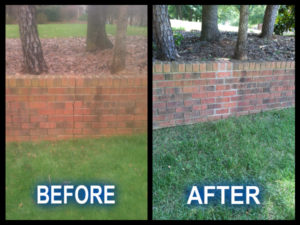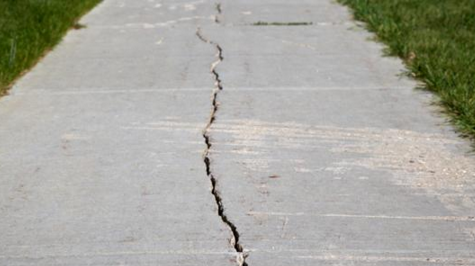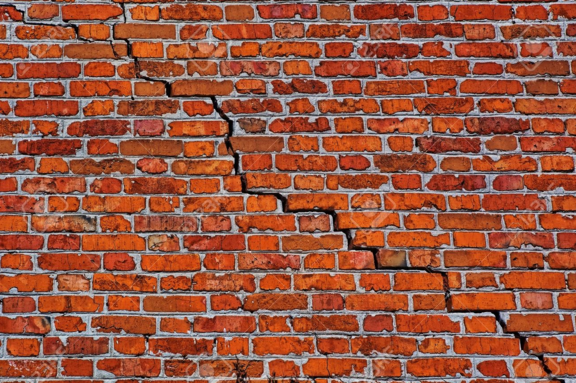Luckily the Southeast has generally mild winters but that still doesn’t mean home masonry won’t crack or crumble. While most homeowners are content to ignore this situation, it can be the beginning of a serious problem. Most masonry cracks seem cosmetic but beware as some can damage the building during the frequent NC cold snaps by allowing water to enter and then expand into the brickwork as it freezes. Prevention is cheaper, so taking care of masonry repairs now can save your home from serious damage later.
Here are some general tips for masonry repair Charlotte, NC.
Small Cracks in Walls
 For small or hairline cracks in brick, it is a difficult task to find something that can fit into the space to fill it. At your local hardware store, look for creams and gels which contain silicone rubber, or even butyl rubber. These gels will usually appear in tubes, and are described as caulking compounds. Apply the gels using a stiff brush with small bristles: clean out the crack first, and then squeeze the tube into the crack, until the rubber gel is tightly packed. Only use this kind of treatment for very small cracks, where more traditional caulking methods would not work: for cracks which are more than a sixteenth of an inch wide, you should consult with a professional like Charlotte Pavers & Stone.
For small or hairline cracks in brick, it is a difficult task to find something that can fit into the space to fill it. At your local hardware store, look for creams and gels which contain silicone rubber, or even butyl rubber. These gels will usually appear in tubes, and are described as caulking compounds. Apply the gels using a stiff brush with small bristles: clean out the crack first, and then squeeze the tube into the crack, until the rubber gel is tightly packed. Only use this kind of treatment for very small cracks, where more traditional caulking methods would not work: for cracks which are more than a sixteenth of an inch wide, you should consult with a professional like Charlotte Pavers & Stone.
Medium Sized Cracks in Walls and Driveways
For cracks in driveways and patios, it is not always possible to use caulking: walking on the surfaces can disrupt the caulking, making it useless. Medium sized cracks in walls may also be resistant to caulking processes. Instead, use a patching cement, which is a mixture of sand and cement: those which have been reinforced with vinyl, and described as vinyl patching cement, are the best for this purpose. Patching cements are usually found in powders, and are used after mixing with water. The best use for this cement is in patching narrow cracks: applying the cement in layers can also help it to be used on medium cracks in walls.
Large Sized Cracks in Walls
If you have found a large crack in your masonry, then the best solution is to use a sand-patching cement, although you should know that it must be used in layers of over half an inch thick, and the crack must be a significant size for the patching to adhere firmly. Before applying the patch, you will need to dig out the crack with a chisel: remove all crumbling masonry around the crack, and make the crack wider inside than it is on the face. This will help the patch to grip to the surface better. Brush away debris and diert, and make the inside of the crack damp before applying the patch.
Large Cracks in Pavements
For large cracks in pavements, steps or driveways, you should use a concrete mix. See our 5 steps to concrete repair. This can be bought in powdered form from home improvement stores, or can be mixed by yourself as sand, cement and gravel. Add water to the mixed ingredients, until you have formed a concrete-like paste. You will need to create something to keep the concrete in place while it hardens.
be bought in powdered form from home improvement stores, or can be mixed by yourself as sand, cement and gravel. Add water to the mixed ingredients, until you have formed a concrete-like paste. You will need to create something to keep the concrete in place while it hardens.
If you aren’t up to tackling these jobs, call Charlotte Pavers & Stone. We specialize in all matter of masonry repair in Charlotte, NC and surrounding areas and are happy to consult on a repair or do it ourselves. No job is too small!
Check out our before & after repair gallery.
[hero_unit btn_text=”Before & After Gallery” btn_link=”/portfolio-view/before-after-design-gallery/” btn_style=”default” btn_size=”normal” target=”_self”]

